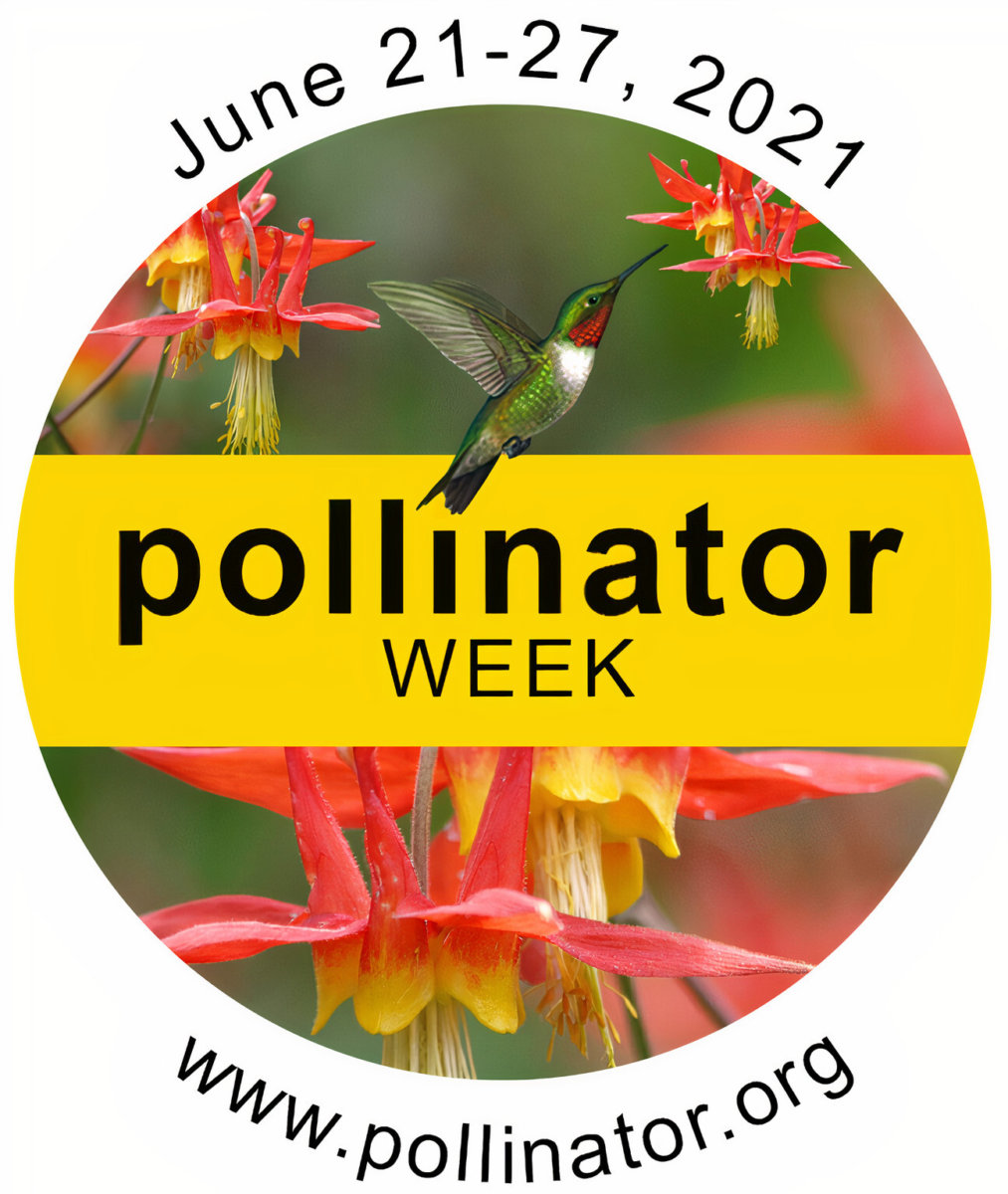 Pollinators are critical to our food supply and natural resources. Pollinator Week is an annual celebration of these animals and insects.
Pollinators are critical to our food supply and natural resources. Pollinator Week is an annual celebration of these animals and insects.
When we think of pollinators, we often think of bees. And yes, bees are the most important pollinator. But pollinators also include animals such as birds, bats and small mammals. Most pollinators (more than 200,000 species) are beneficial insects such as flies, beetles, wasps, ants, butterflies, moths and bees.
Pollination is necessary for the reproduction of over 85 percent of the world’s flowering plants. This includes more than two-thirds of the world’s crop species. In the United States, more than 100 crops either need or benefit from pollinators. The economic value of these native pollinators is estimated at $3 billion per year in the U.S.
Beyond agriculture, fruits and seeds that depend on pollination are a major part of the diet of about 25 percent of all birds and many mammals.
Pollinator populations are shrinking due to a loss in feeding and nesting habitats, pollution, the misuse of chemicals, disease and climate change. About 25 percent of bumble bee species are thought to be in serious decline, and monarch butterflies have declined by 90 percent in the last 20 years.
How can you help?
Add pollinator habitat to your landscape
Add plants that attract pollinators
It is important to have plants that provide access to pollen and nectar throughout the growing season. Native plants are especially important. Here are lists of plants that attract pollinators.
- Xerces Society: Pollinator Plants for the Maritime Northwest
- Pollinator Partnership: Pacific Lowland Regional Guide
- Great Plant Picks: Pollinator Plants
- Oregon Metro: Native Plants for Pacific Northwest Gardens
Avoid using pesticides
Insecticides will kill bees and butterflies, and herbicides will kill important native plants such as milkweed that pollinators rely upon as a food source and a place to raise young. Make the commitment to avoid using chemicals and to maintain your garden in a natural, organic way. Read more about natural yard care.
In Harmony can help keep your landscape healthy naturally. Read more about our natural lawn, tree and shrub care services.
Beyond Pollinator Week: get more involved
If you would like to do more outside of your own yard to help pollinators, consider these options.
Pollinator Protection Pledge. Join 8,000+ people who have already signed a pledge to protect pollinators. Pledge to plant bee-friendly flowers and take other steps.
Pacific Northwest Bumble Bee Atlas. Attend a training and help collect critical information on our native bumble bees. This citizen science project seeks a better understanding of where these animals are living. It will help with efforts to conserve them and to protect habitat in the best places.
Bee City USA. Mobilize your local community to raise awareness about pollinators. The goal is to pass a resolution committing to actions to protect and enhance pollinator habitat.
Find out more and donate
- Pollinator Partnership, sponsor of Pollinator Week
- Xerces Society, protecting invertebrates and their habitats
- USDA Forest Service pollinator info
- US Fish and Wildlife Service pollinator page
- National Wildlife Federation pollinator info
- US Botanic Gardens, info on specific types of pollinators

Trackbacks/Pingbacks